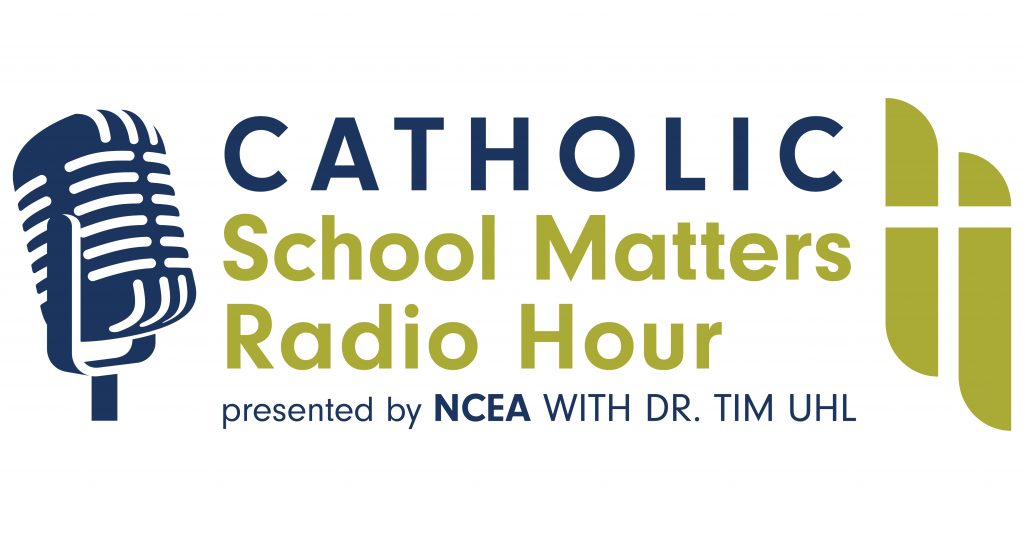
Last month, retired Seattle Archbishop Alexander Brunett passed away at the age of 86. You can read a Seattle Times article about him here. When I read Thanks for the Feedback last year, I took to heart the author’s idea that we need to listen for the message behind feedback—even if it seems untrue, unfair, and/or poorly delivered. The authors brought me back to an unfortunate day in 2004 when I found myself in Archbishop Brunett’s office.
I had applied to be a principal and thought I was meeting with the Archbishop so he could confirm the search committee’s choice. But I soon found myself being interrogated about Catholic identity. Archbishop Brunett made his vision for Catholic identity very clear—more priestly vocations, crosses and other religious symbols widely visible, uniforms, and devotions. At that time, I saw those symbols as window dressing and not nearly important as every student having a personal encounter with Jesus, every student finding his/her own place in the world, religion classes being relevant, and all feeling called to holiness. I found myself defending Vatican II and questioned whether his vision was still relevant.
We were two ships passing in the night, each holding to our own version—either/or, black/white, and each of us maintaining that the other was wrong. We argued. He was offended that I refused to back down. It was my first face-to-face meeting with an archbishop who was MY archbishop at the time. He was condescending and insulting. I was shaken that my shepherd was accusing me of not being Catholic enough. However, he was partly right.
I didn’t listen for the feedback, didn’t appreciate his perspective, didn’t see that it wasn’t an “either/or” but a “both/and.” I didn’t need to be a martyr for the cause of Vatican II. I needed to listen to his concerns and respond accordingly. Reading Stone & Heen’s book forced me to reexamine that disappointing episode and mine it for lessons. I came to realize that my vision for Catholic identity wasn’t wrong, it just wasn’t the only vision.
Needless to say, I didn’t get the job. It was a bitterly disappointing day and caused me to question whether I really belonged as a Catholic school principal and a lay leader in the church. I wish I had learned the lessons of Thanks for the Feedback two decades ago so that I could have handled the disappointment better. Eventually, my resentment toward Archbishop Brunett dissipated as I grew to appreciate that his forceful personality led to many positive changes in the archdiocese.
Some lessons take a few years to really learn. I’m grateful for the lesson Archbishop Brunett taught me back in 2004, and I pray for his eternal rest.
Top 5
In this week’s newsletter, I blog about a tough lesson I learned in 2004 from the now-deceased Archbishop of Seattle, Alexander Brunett. I’ve also collected a wide number of articles for your reading pleasure. The Top 5:
- In the American Catholic News section, Kathleen Porter-Magee is at it again! This week’s featured article is from America magazine entitled “In An Age of Extreme Individualism, Catholic Schools Are More Important Than Ever.”
- In the Leadership section, the Harvard Business Review’s “5 Tips for a Great Presentation” is worth reading. In this month when I encourage school leaders to give a “State of the School” presentation, these tips might help.
- The next article from the Farnam Street blog is about elastic thinking. Letting go of our patterns of thinking and learning to navigate a confusing world is essential.
- In the Teaching and Learning section, blogger Tom Barrett from Down Under presents two articles on the SOLO taxonomy which I found to be a different paradigm for learning.
- The next two articles are on Project-based Learning (PBL) and center on research and practical ideas for implementation. Who says these articles can’t be practical?
Have a great week!
Podcast
The Catholic School Matters podcast this week features two great guests. Tim Bopp, the president of Holy Trinity High School in his 27th year, discusses the fascinating origin of his high school which responded to the Polish neighborhood in inner-city Chicago and was borne out of conflict in Catholic Chicago. The demographics of the school have changed radically over the years as has the neighborhood. Holy Trinity is no longer a Polish-only school and is a melting pot. Then the Lead Economist from the World Bank and the publisher of the Educatio Si bulletin, Dr. Quentin Wodon joins the podcast to discuss his work promoting and encouraging research on Catholic schools around the world. His hobby has taken him to support the work of the OIEC (International Office of Catholic Education).